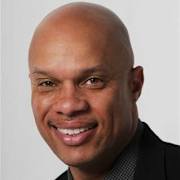SPORTS INFO DASH
Sports Info Dash is your all-in-one hub for real-time sports updates, live scores, in-depth match stats, player profiles, and breaking news across football, basketball, tennis, and more. Stay ahead with the latest in global sports action.
Craig Hodges: The Story of an NBA Champion, Activist, and Sharpshooter
Sports Info Dash
Craig Hodges remains one of the most intriguing figures in NBA history. Known for his lightning-quick shot, championship pedigree, and unwavering voice for social justice, Hodges left a mark that stretches well past the three-point line.

Rising to the NBA Spotlight
Starting his NBA career in 1982, Craig Hodges quickly established himself as one of the league's premier outside shooters. His journey reached new heights with the Chicago Bulls, where he played alongside legends like Michael Jordan. During his time with the Bulls, Hodges won two NBA Championships and etched his name in history as a three-time NBA Three-Point Contest winner.
Hodges wasn't just a role player. He led the NBA in three-point shooting percentage in two separate seasons and earned respect for his persistence and work ethic.
The White House Letter: Sacrifice for Social Justice
But Craig Hodges' story is about more than basketball. In 1991, shortly after winning his first championship with the Bulls, he used a White House visit to deliver a hand-written letter to President George H.W. Bush. Hodges spoke out against inequality, urging action for inner-city communities and calling attention to the struggles faced by minorities in America. This bold move, as chronicled in this Sports Illustrated article, soon had significant consequences for his career.
After delivering the letter, Hodges saw his minutes sharply reduced. Despite his clear abilities, he was released by the Bulls after their 1992 championship win and never played another NBA game. Hodges himself has reflected, “What did I do? I never missed a bus. I was never fined during my career... The narrative was me having the audacity to write a letter to the president.”
Activism and Courage: The Price of Speaking Up
Hodges’ experience reveals the complicated relationship between professional athletes and activism. As BVM Sports highlights, his political stance was ahead of its time. The NBA has gradually shifted its stance on social issues, but Hodges was among the first to risk his career for the causes he believed in.
He also tried to rally fellow players to boycott the 1991 NBA Finals in response to the beating of Rodney King by police officers in Los Angeles. Though unsuccessful, his actions paved the way for future generations of athletes to speak out on matters of justice and equality.
Beyond the Court: Coaching and Mentoring
After his NBA career, Craig Hodges continued to influence the basketball world as a coach and mentor. He even worked with Kobe Bryant, helping the Lakers' legend hone his iconic jump shot. As recounted in an emotional story by Sports Illustrated, Hodges stressed to Bryant the importance of focus and technique during training sessions. His impact on players' careers extended beyond skill, inspiring discipline and resilience.
Legacy: Influence that Lasts
Craig Hodges' legacy is defined by more than statistics or titles. His decision to use his platform to advocate for change remains a powerful example for athletes across generations. While his career was cut short prematurely due to his activism, his courage has gained renewed appreciation as conversations about athlete advocacy grow louder.
Today, Hodges stands as a reminder: standing up for what is right can be costly, but it can also leave a lasting mark. The NBA, and the world of sports, continues to learn from the story of Craig Hodges.
Want to learn more? Explore how Craig Hodges' activism shaped his NBA journey and his experience transitioning from Jordan's teammate to a voice for change.